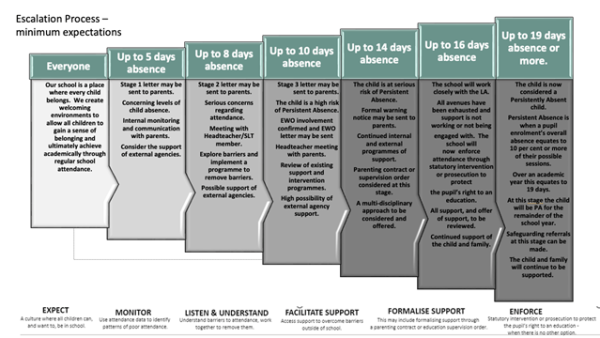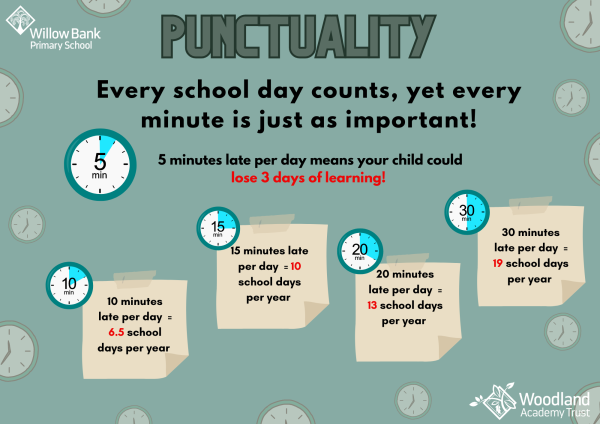Attendance & Punctuality
Attendance and Punctuality
Our Senior Attendance Champion is - Miss C Nembhard (Deputy Headteacher). Please contact via the school office (WBPoffice@watschools.org.uk).
Day to day contact to discuss Attendance matters is - Mrs J Edgar (Community Liaison Officer) or Mrs A Oldfield (Headteacher). Please contact via the school office as above.
Our approach to improving attendance and persistent absence:
Our school adopts the 5 Foundations of Effective Attendance Practice Framework, this is modelled on the work of Professor Katherine Weare. The emphasis is on developing a school culture and climate which builds a sense of connectedness and belonging to ensure all children can attend school and thrive.
The staged approach we use ensures we identify triggers early that can lead to poor attendance issues such as mental health issues, lack of trust, communication, relationship breakdowns and the possible lack of networking opportunities both internal (in-school) and external (external agencies).
Aims of the strategy
- Increase school attendance and reduce persistent absence to meet set targets.
- Ensure attendance is well managed within the school, with the appropriate level of resources allocated.
- Enable the school to make informed use of attendance data to target interventions appropriately.
Objectives
- Create an ethos within the school in which good attendance is recognised as the norm and child aims for excellent attendance
- To make attendance and punctuality a priority
- To set focused targets to improve individual and whole school attendance
- To provide support, advice and guidance to parents and children to develop mutual cooperation between home and the school
We have a Trust wide Attendance Policy which shares the expectations for each school at a minimum. The escalation process that is used at Willow Bank is below:

Willow Bank works alongside the local authority and use the service of an Education Welfare Officer (EWO). Our EWO is Sara Chambers who works closely with our school Community Liaison Officer (CLO), Mrs Edgar, to monitor and support families. The local authority and EWO have their own escalation process which may lead to legal proceedings should a child be persistently absent.
Persistent Absence (PA) is when a child's overall absence equates to 10 per cent or more of their possible sessions in school. Over an academic year this equates to 19 days and at this stage the child will be a PA for the remainder of the school year. A child can be a PA at any point in the school year due to their percentage but with early intervention and support this can change.

